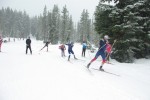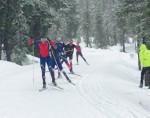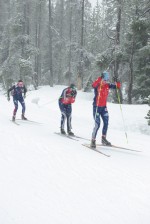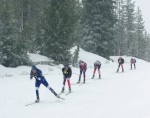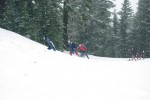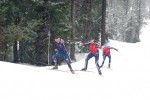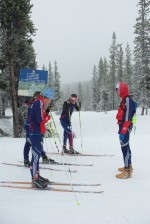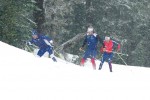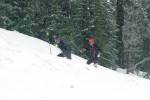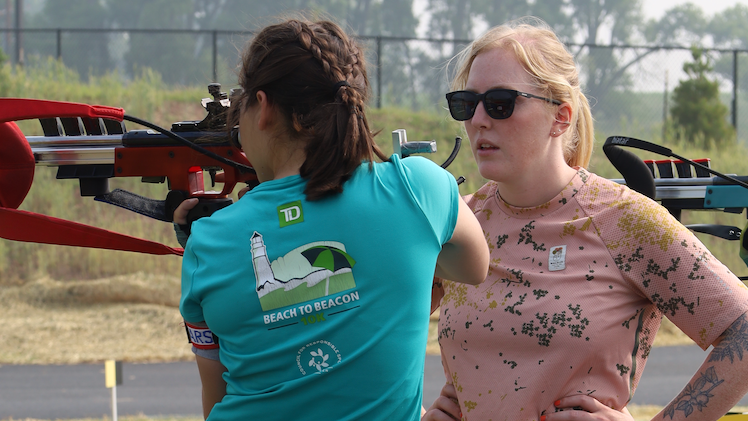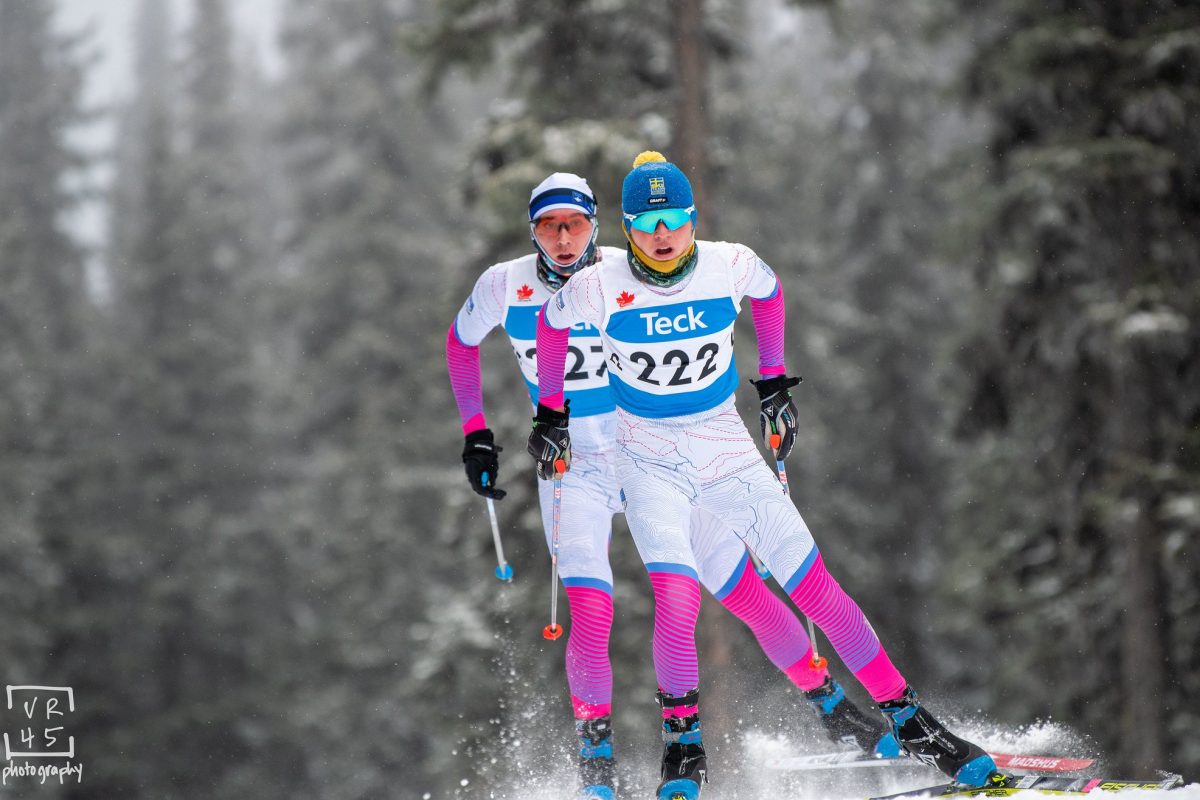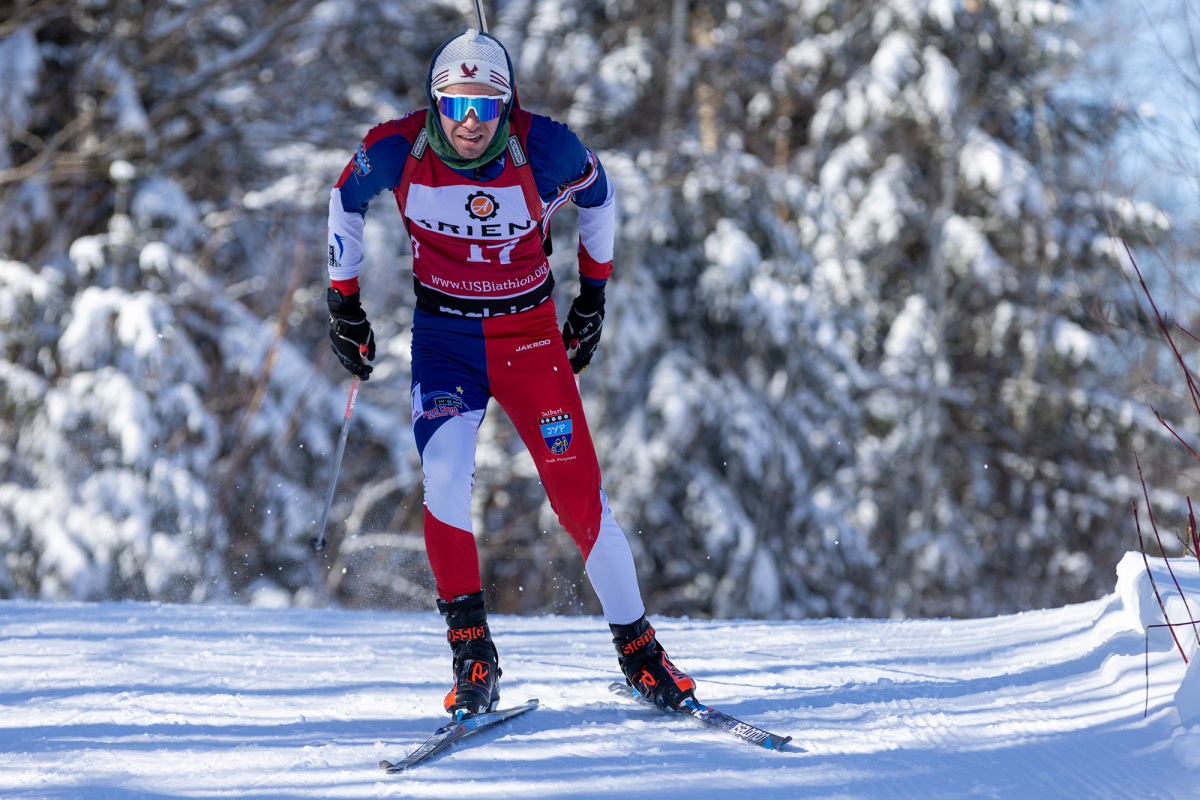
BEND, Oregon – Biathlon Canada Head Coach Matthias Ahrens, a native of Germany, had never been to Bend until this month. But now that he’s seen what the town has to offer, he anticipates being back.
“It’s perfect,” he told FasterSkier as his athletes did an interval workout on Wednesday. “It’s so nice that now we have winter conditions – every day it has been perfect conditions for skiing, plus you can go down and mountain bike or run. It’s a nice town, so it’s ideal.”
The Canadians, who are based out of Canmore, don’t suffer from a lack of on-snow training in the spring; Canmore held their snow through early May, and then the team moved on to the Engadine Lodge near Mount Shark, where they were able to do crust skiing for several more weeks. The “B” team is currently at Sunshine Village, doing a similar camp to the one the “A” team is holding in Bend.
But Bend, Ahrens said, has several advantages.
“We have opportunity to ski [at home], but this type of terrain at a medium altitude of 1900 meters is really good,” he said, pointing out that Sunshine’s 2400 feet of elevation creates a bit more stress on athletes’ bodies. If the federation had a bigger budget, he’d bring the “B” team to Bend, too; as it is, only four athletes – JP Le Guellec, Nathan Smith, Scott Perras, and Megan Imrie – made the trip.
The other big advantage? As Ahrens was talking, Smith and Perras were grinding through a workout with U.S. biathletes Lowell Bailey, Tim Burke, and Russell Currier.
“It ended up being the first workout together today,” Ahrens laughed. “We arranged twice to meet up for mountain biking, but things went wrong and it didn’t end up happening. The boys and girls have skied together for easy skis, though.”
It’s also the first Bend camp for the U.S. team (U.S. coach Jonne Kahkonen discussed Bend in an earlier interview), and Ahrens appreciated the chance to see and ski with the other biathletes, as well as the U.S. and Canadian national ski tams.
“Yesterday we were saying among us coaches that even if we don’t do a workout together, and even you must have the same feeling when you’re standing here at this intersection, the interactions going on between both biathlon teams and both cross country teams, it’s just a good vibe,” he said. “Usually we only get this in Europe, say in Ramsau on the glacier.”
The biathletes had originally planned to join the skiers in a relay workout on Wednesday, but one downside to the large number of national team and club athletes present was that planning a coordinated session got complicated. The biathlon teams eventually backed out and planned their own workout.
“Until they decided exactly what they were going to do – you know, there’s so many coaches here, it’s difficult to coordinate,” Ahrens explained. “So Per [Nilsson, the U.S. head coach] and I got together yesterday, and they hadn’t made up their mind yet, so Per and I said, ‘let’s plan for this,’ and that was the main reason.”
Ahrens has a small “A” team, especially since Brendan Green, one of the top men, is recovering from back surgery and unable to train. That leaves the other athletes with one fewer skier to compete against in workouts, which is a blow to the program.
As a result, he was perhaps even more appreciative of having Bailey, Burke, and Currier to push his men.
“It’s neat to have some other training partners and just to gauge yourself,” Ahrens said. “I mean, right now it is not important at all because we’re in the beginning of the new training season, but it’s just to see how others take certain terrain tactically, and how they pace themselves, and it’s always good to ski in a bunch.”
After comparing notes with Nilsson, Ahrens saw that the benefits of the camp were huge and hoped he’d be back next year.
“We like it a lot,” he said. “It’s the first time for us, and the same for Per and Jonne. This could be an annual event.”

